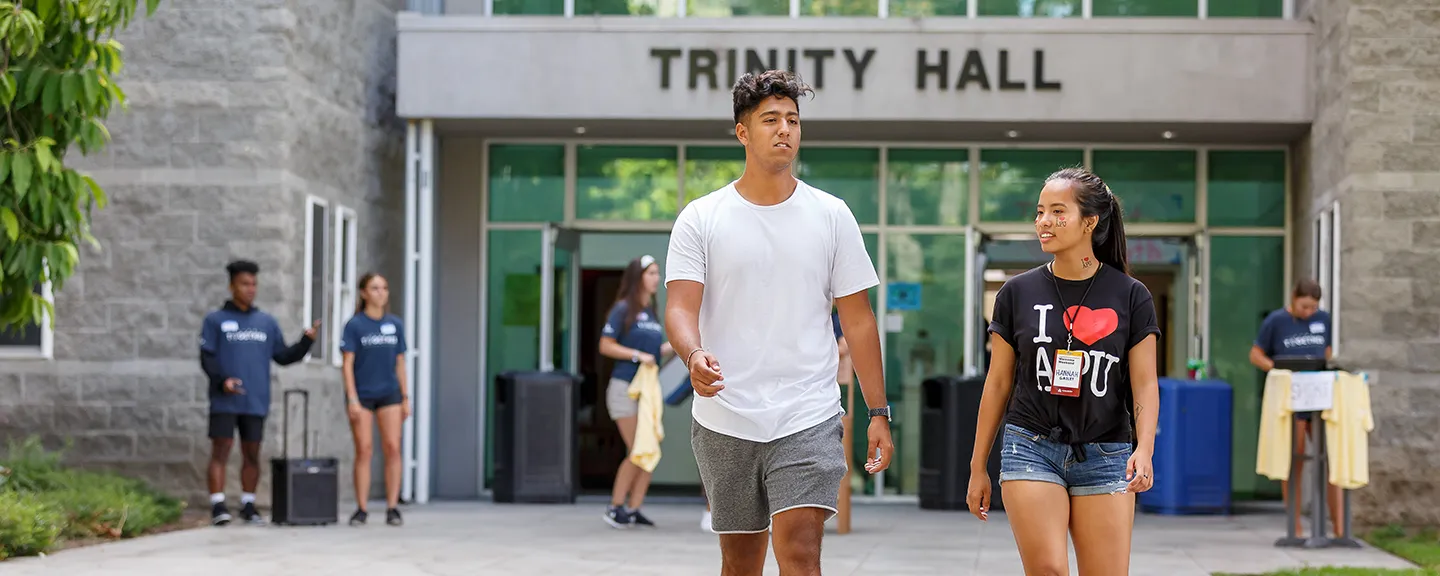- Home
- >
- APU Articles
- >
- News Article
Preparing for College After a Gap Year
April 06, 2021 | Written By Ben Kissam

Gap Year Student Challenges
“With a break from academic work, students may be more focused and prepared to engage their undergraduate coursework after a gap year.” said Courtney Wong Davis, PhD, associate professor of communication management at Azusa Pacific University.
Contemplating college after a gap year can cause some common worries, including:
- Fear of missing out on social activities.
- Anxiety about falling behind academically.
- Fear of not returning to school. (Don’t worry: the Gap Year Association reported that 90 percent of high school graduates who take gap years return to college within a year.)
Couple those with the limitations brought on by the COVID-19 pandemic, such as:
- Not being able to participate in traditional gap year activities, such as living abroad or gaining work experience.
- Anxiety or fear of the unknown.
- Lack of clarity regarding when you’ll arrive on campus.
The good news is that all of these challenges can be solved by wisely preparing yourself in advance for entering or returning to college.
Preparing for College after a Gap Year
As you prepare to transition back into a more consistent academic routine, making time for personal reflection will help you get ready for college, especially if you’re feeling overwhelmed.
Ask yourself questions like:
- What things can I control about my college experience? What can’t I control?
- How will I handle a new environment and the potential for unexpected changes?
- What adjustments might I have to make in my schedule or activities?
Mentally preparing helps create space for when tough situations do arise. You’ll be more likely to respond to adversity with grace and poise. Give yourself some time to unwind, though—it’ll benefit both your gap year and future studies.
“Be wholly where you are,” said Davis. “When you take time away from academic life, you’re likely to more fully engage in your academic work when you return to it.”
Once You Start School
Arriving at college as a gap year student is a lot like swimming. You can hear what it’s like from other people—but until you actually jump in, you won’t fully know what to expect.
“Once students begin their academic journey after a gap year, it’s common for students to feel out of place,” said Davis. “Perhaps it’s imposter syndrome or feeling older than traditional undergraduate students. To make the transition easier, I’d encourage students to bring all of their life experience to the classroom, which provides an opportunity for growth for them and their classmates. Take advantage of the resources offered on campus. Help others understand where you are and where you are going, and how they can help you get there.”
As you start school, be prepared to make a few additional adjustments. Knowing which resources are available can help boost your confidence. At APU, students have access to several resources that can help them excel academically, socially, and personally:
- Academic Success Center (plus their own individual academic advisor)
- Campus Life
- Spiritual Life
- Counseling Center
- Student Leadership opportunities
Take a moment to familiarize yourself with these resources and reach out if you think they could help you get back into the rhythm of college life and find the connections and support you need.
Going Forward
Eventually, you’ll settle into classes and your gap year will start to feel like a memory. Just don’t forget to use your gap year experience to your advantage.
Consider writing about what you achieved during your time off for a class paper, or put what you achieved on your résumé. Reconnect and network with the people you met along the way.
Basically, don’t shy away from who you’ve become during your time off! While there may be an adjustment initially, your gap year experience can help you become stronger, wiser, and more adaptable—all skills you need to succeed in college.
Are you a gap-year student planning to start college soon? Apply to Azusa Pacific today and explore the student resources that can help you thrive during your first year of school.